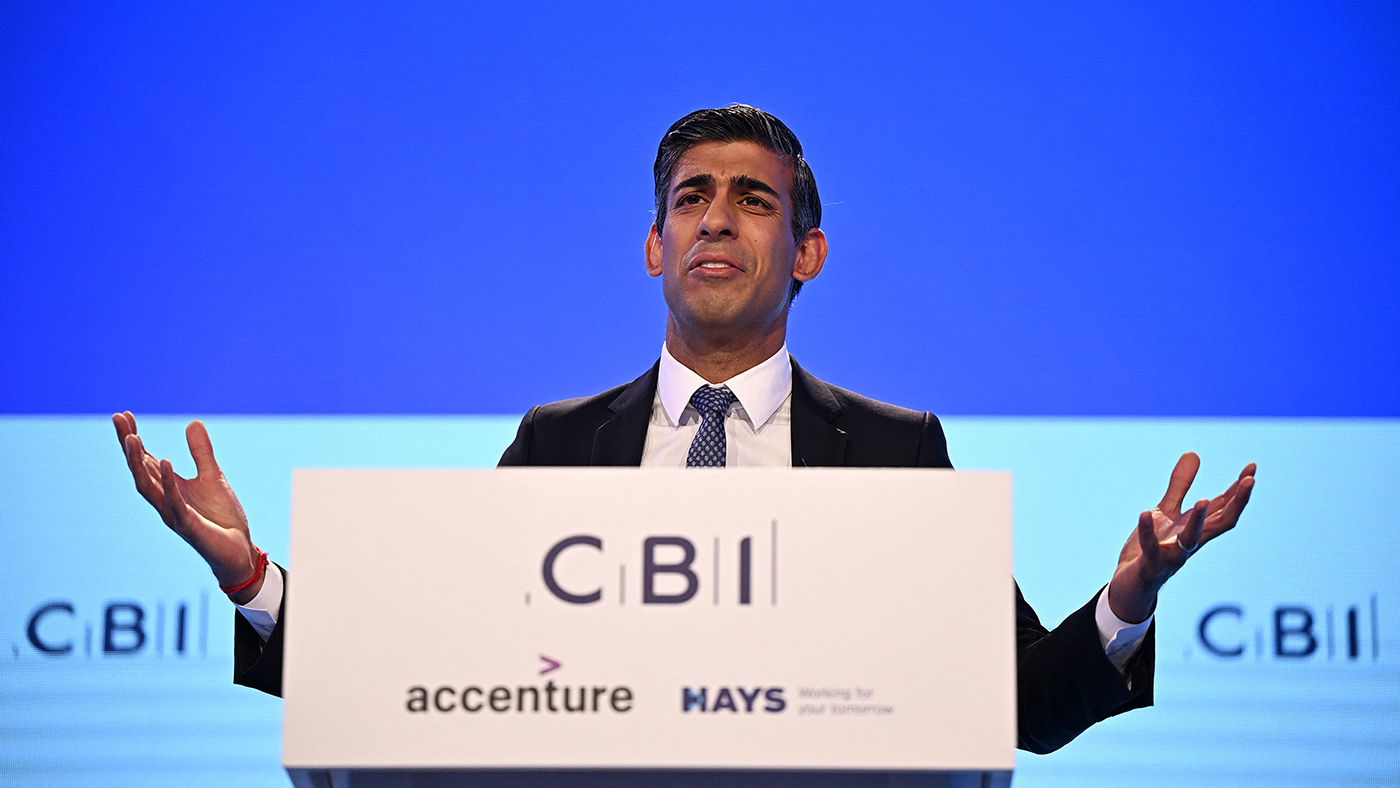Why UK companies are facing a dystopian, zero-growth future
In prioritising stability, the Treasury risks ‘stifling enterprise and entrepreneurship’

A free daily email with the biggest news stories of the day – and the best features from TheWeek.com
You are now subscribed
Your newsletter sign-up was successful
Rishi Sunak was praised as a man of “integrity” by CBI director-general Tony Danker when he addressed the business group’s annual gathering in Birmingham this week. Members may have concluded that anything is better than “blathering on about Peppa Pig World” like his predecessor, said Ross Clark in The Spectator. But Sunak’s performance was hardly inspiring: “his usual enthusiasm sounded more like a desperate appeal”.
The PM, after all, knows as well as his CBI audience that last week’s Autumn Statement “was not about stimulating growth. It was 90% fiscal consolidation.” Sure, businesses were “thrown a few cherries in the form of R&D incentives”; but the “underlying story” is that they’re “going to pay more tax”. Neither the rise in corporation tax to 25% nor higher capital gains tax bills will stimulate investment.
Chancellor Jeremy Hunt did offer one other sweetener, said Daniel Thomas in the FT: a five-year relief on business rates worth £13.6bn. But critics, such as the Federation of Small Businesses, said that the Chancellor’s statement was “high on stealth-creation and low on wealth-creation”, and would pile more pressure on the UK’s 5.5 million small firms. Others “expressed dismay that the Government had not done more to try to stimulate the economy” – by, say, forging “a new deal” on immigration to solve staff shortages, or loosening EU trading rules.
The Week
Escape your echo chamber. Get the facts behind the news, plus analysis from multiple perspectives.

Sign up for The Week's Free Newsletters
From our morning news briefing to a weekly Good News Newsletter, get the best of The Week delivered directly to your inbox.
From our morning news briefing to a weekly Good News Newsletter, get the best of The Week delivered directly to your inbox.
Here, again, the PM disappointed, said Harry Horton on ITV. Sunak categorically denied talk of a move towards a “Swiss-style EU deal”, featuring more liberal migration rules and the possibility of more frictionless trade. Few in the audience were mollified by his assertion that better “robotics and automation” could do the trick instead.
In prioritising financial stability over anything else, said Alex Brummer in the Daily Mail, the Treasury is “stifling enterprise and entrepreneurship”. Yet, bizarrely, they take Silicon Valley as their model, said Dominic O’Connell in The Times. And when Hunt outlined the “future engines of the economy”, he listed just five: digital, life sciences, green tech, financial services and hi-tech manufacturing. If you run a traditional manufacturing business, “you would definitely feel unloved”. Trade bodies say that British firms are “in survival mode”.
They’re right, said Matthew Lynn in The Daily Telegraph. The Autumn Statement may have gone down pretty well with markets, but it’s “a recipe for stagnation”. Britain has “chosen” to become a zero-growth economy – as in “Italy or Japan, whole decades will go by with no increase in total output”. If they adapt, firms can survive even this challenging environment. But let’s not pretend it will be anything but “a grind”.
A free daily email with the biggest news stories of the day – and the best features from TheWeek.com